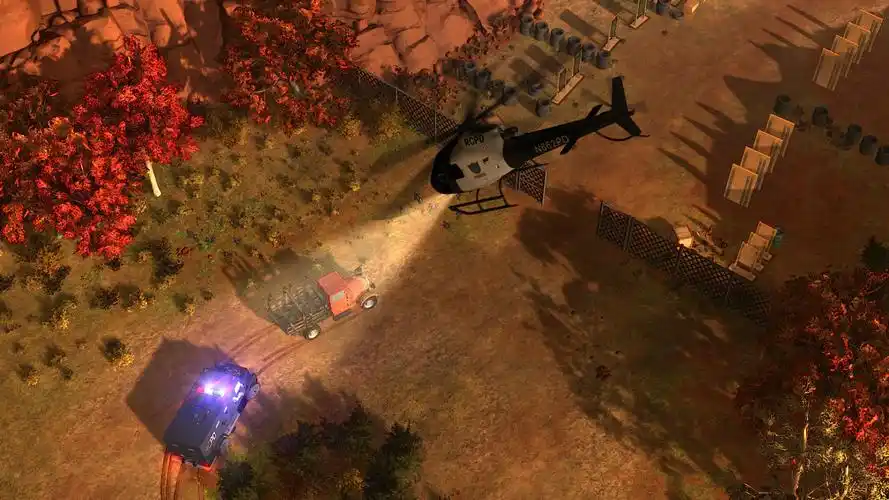Decoding the Depths: Advanced Strategies for Engaging with Deep Game News
For the modern gamer, keeping up with releases is just the surface level. Beyond launch trailers and review scores lies a rich, complex ecosystem of "deep game news"—developer interviews, technical post-mortems, industry financial reports, engine updates, and nuanced critical essays. Engaging with this layer of information transforms a passive hobby into an active, deeply rewarding intellectual pursuit. Moving beyond simply consuming headlines requires a refined set of strategies to not only find this content but to critically analyze, contextualize, and utilize it.

Cultivating a High-Quality Information Ecosystem
The first step in engaging deeply is curating your information intake. The standard algorithm-driven feeds of social media are designed for virality, not depth.
- Follow the Developers, Not Just the Brands: While studio accounts post marketing material, individual developers, designers, writers, and programmers often share invaluable insights on platforms like Twitter, Mastodon, or personal blogs. They discuss technical challenges, design philosophies, and cut content, offering a raw, unfiltered look into the process.
- Prioritize Long-Form Content: Seek out and subscribe to publications and YouTube channels that prioritize analysis over news breaks. Look for content that asks "why" and "how" rather than just "what." This includes video essays deconstructing game mechanics, podcasts featuring roundtable discussions with critics, and websites dedicated to game criticism rather than just consumer advice.
- Embrace Primary Sources: Instead of reading a news article summarizing a studio's financial report, look at the report itself. Instead of watching a recap of a GDC talk, find the talk's slides or full video. Primary sources eliminate the filter and potential misinterpretation of secondary reporting, allowing you to form your own conclusions.
Mastering Critical Analysis and Contextualization
Finding deep news is only half the battle; knowing how to interpret it is the true advanced skill. Every piece of information exists within a wider context.
- Triangulate Your Sources: Never rely on a single news item. If a report claims a game is "troubled," seek out multiple industry insiders, read between the lines of official statements, and compare it to past patterns from that developer. Cross-referencing reports from journalists, developer anecdotes, and official channels helps build a more accurate picture.
- Understand the Business Context: A game's design is often directly influenced by business realities. Learning basic concepts like monetization strategies, platform holder policies, development budgeting, and market trends allows you to understand *why* certain decisions are made. Why is a live-service game structured that way? Why was this ambitious feature cut? The answers often lie in quarterly earnings reports, not in design documents.
- Learn the Language of Development: Familiarize yourself with fundamental technical and design terminology. Understanding concepts like procedural generation, shaders, netcode, asset streaming, or the nuances of different game engines (Unreal Engine 5 vs. Unity vs. proprietary engines) allows you to fully appreciate technical deep dives and developer commentaries. This knowledge turns impenetrable jargon into meaningful insight.
From Consumption to Contribution and Application
The deepest level of engagement involves moving from passive analysis to active participation and practical application.
- Engage in Informed Discourse: Join forums, Discord servers, or subreddits dedicated to serious game discussion. Move beyond "I liked/disliked it" and contribute by writing analyses, creating video content, or simply participating in threads that dissect a game's narrative themes or technical achievements. Use the news you've consumed as evidence to support your points.
- Support Investigative Journalism: Deep, investigative reporting into crunch culture, studio closures, or industry misconduct is resource-intensive. Supporting independent journalism through subscriptions or donations is a direct investment in the health and transparency of the games industry. It ensures that crucial, uncomfortable stories continue to be told.
- Apply Insights to Your Own Play: This engagement fundamentally alters how you play. You might appreciate a game's art direction more after reading a technical article about its use of virtualized geometry. You might understand a narrative's flaws after learning about its tumultuous development through multiple writers. You become more empathetic to the process, more critical of the final product, and ultimately, a more discerning and appreciative player.
Conclusion: Becoming a Connoisseur of the Digital Craft
Engaging with deep game news is a practice in digital literacy and critical thinking. It’s about recognizing that games are not merely products but the culmination of years of labor, technical innovation, artistic ambition, and complex business decisions. By strategically curating sources, analyzing information with a critical and contextual eye, and moving from consumption to contribution, you do more than just stay informed. You develop a profound appreciation for the medium, understanding its inner workings, its struggles, and its triumphs. You cease to be just a player and become a connoisseur of the digital craft.


















